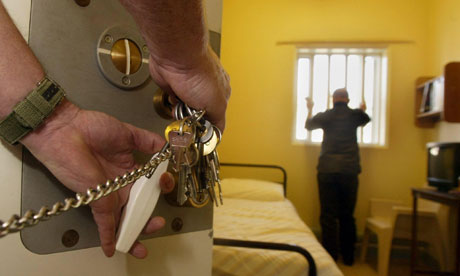The European convention on human rights is not optional, says a solicitor acting for 550 prisoners banned from voting
By Sean Humber The Guardian

The recent announcement that prisoners in the UK will be given the right to vote simply represents a case of the government bowing to the inevitable. As the Cabinet Office minister Mark Harper succinctly stated: "This is not a choice, it is a legal obligation."
As far back as October 2005, the European court of human rights declared the ban on all sentenced prisoners in the UK from voting represented a breach of human rights.
Following this judgment, the last government embarked upon two lengthy public consultations. Many commentators saw these consultations as little more than a delaying tactic in order to avoid taking the necessary steps to rectify the breach.
Like it or not, prisoners form part of our society, use many of the same services and have many of the same concerns as those living in the wider community. From a legal perspective, it is clear that prisoners continue to enjoy all the fundamental rights and freedoms guaranteed under the European convention on human rights to the rest of society save for the right to liberty. The convention is not some kind of à la carte menu from which the government can pick and choose whose rights it wishes to uphold.
In light of the government's continuing failure to implement the court's judgment, my law firm, Leigh Day, wrote to Jack Straw, the then secretary of state for justice, earlier this year, requesting that he take urgent action, using emergency powers available to him, to allow prisoners to vote at the forthcoming general election and threatening legal action if this was not done. Sadly, the government refused to act.
As a result, we are currently acting for more than 550 serving prisoners in applications to the European court of human rights seeking a declaration that the government's failure to allow them to vote at the recent general election was unlawful and requesting compensation for the breach of their human rights. Overall, in relation to all the claims now being brought, the government could be facing a bill running into millions of pounds in relation to compensation and legal costs.
The belated acceptance by the current government that they have been acting unlawfully and their commitment to remedy the situation is to be welcomed. Some credit must be given to the coalition for not seeking to prevaricate further, after years of inaction by Labour. It is nonetheless disappointing that ministers appear to be competing with each other to distance themselves from the decision and its consequences. It is also somewhat dispiriting, albeit revealing, for ministers to state that the primary reason for taking action now is to stave off further legal action.
Nonetheless, the simple fact remains that whatever the government now does, serving prisoners, including our clients, were unlawfully prevented from voting at the recent general election. As a result, they are entitled to compensation for this breach of their human rights.
It will also be important to critically examine what proposals are put forward by the government. While nothing has yet been published, there have been worrying noises about restricting the right to vote to a proportion of prisoners. If correct, this could prove to be another costly mistake.
In a recent judgment, upholding a claim brought by an Austrian prisoner convicted of murder and serving a life sentence, the European court of human rights emphasised that the right to vote should be withdrawn only in exceptional situations where the offence related to an abuse of a public position or a threat to undermine the rule of law. Put another way, there needed to be a direct link between the offence committed and the decision to disenfranchise.
Therefore any more limited proposals implemented by the UK government would be unlikely to fully address the breach and would almost inevitably lead to further litigation.
Sean Humber is a solicitor and partner in the human rights department at Leigh Day and Co and specialises in prison law matters

This is John Hirst on Youtube.
ReplyDeletehttp://i56.tinypic.com/o7ol95.jpg
Cheers
Belated congratulations, John.
ReplyDelete